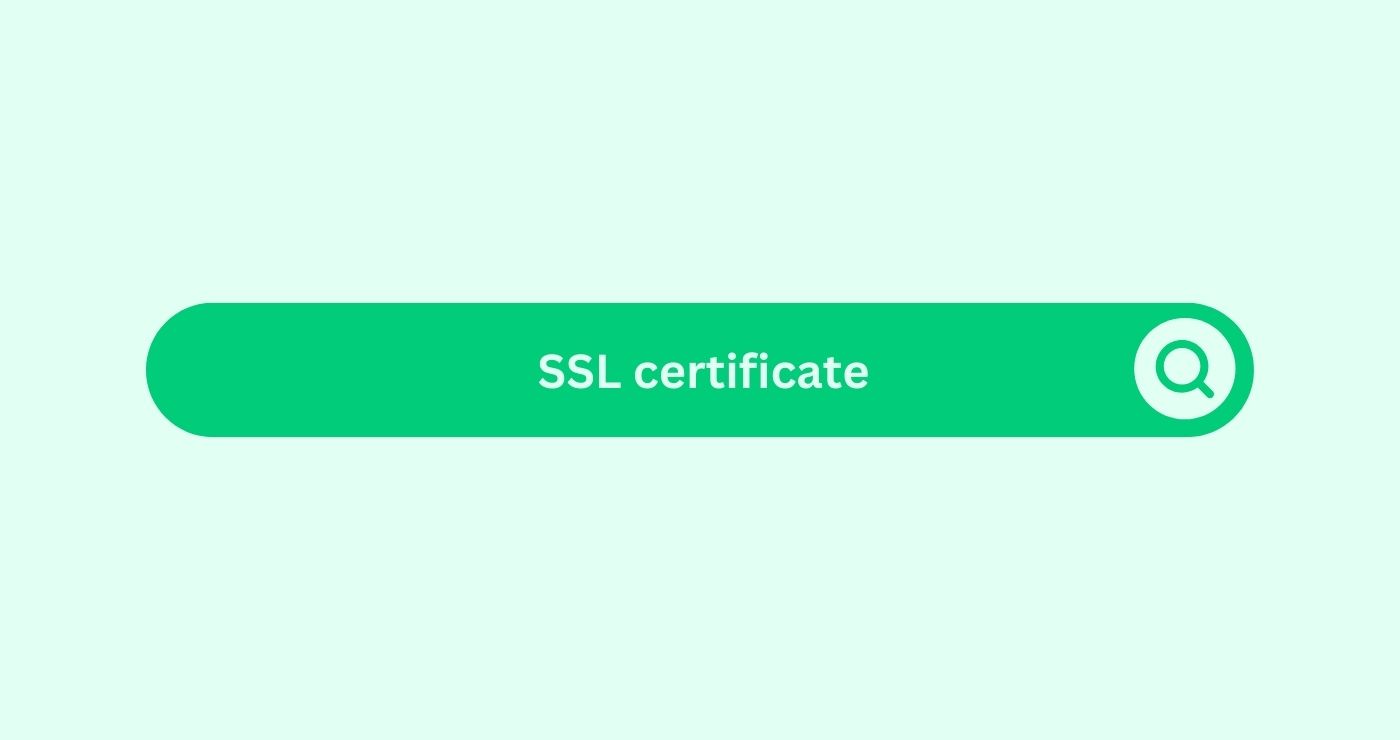Definition
An SSL certificate authenticates websites and enables secure data communication between servers and browsers, safeguarding information from interception.
How you can use
When a user visits a website with an SSL certificate, the padlock icon indicates a secure connection, building user trust and boosting the site’s search engine ranking.
Key Takeaways
- Data Encryption: SSL certificates encrypt data transmitted between the serverDefinition A Server in the SEO space refers to a computer sy... and the client, preventing unauthorised access or eavesdropping.
- Trust and Credibility: Websites with SSL certificates are perceived as more trustworthy by users and search engines, enhancing brand reputation and customer confidence.
- Improved SEO Ranking: SSL encryption is a ranking factor for search engines like Google, so implementing an SSL certificate can positively impact a website’s search engine ranking.
- Protection Against Phishing: SSL certificates help mitigate the risk of phishing attacks by verifying the authenticity of the website, reducing the likelihood of users falling victim to fraudulent websites.
- Compliance Requirements: Many regulatory standards and industry guidelines require websites to use SSL encryption to protect sensitive data and comply with data protection laws.
FAQs
What is the purpose of an SSL certificate?
An SSL certificate encrypts data transmitted between a web serverDefinition A Server in the SEO space refers to a computer sy... and a user's browserDefinition A browser is a software application used to acces..., ensuring secure communication and protecting sensitive information.
How do I know if a website has an SSL certificate?
Look for the padlock icon and "https://" in the website's URL. A secure website will display these indicators in the address bar of the browserDefinition A browser is a software application used to acces....
Can I get an SSL certificate for free?
Yes, there are Certificate Authorities (CAs) and services that offer free SSL certificates, such as Let's Encrypt. However, premium SSL certificates with additional features are also available for purchase.
Do SSL certificates expire?
Yes, SSL certificates have an expiration date, typically ranging from one to three years. It's important to renew SSL certificates before they expire to ensure uninterrupted security.
Is an SSL certificate necessary for all websites?
While SSL encryption is not mandatory for all websites, it is highly recommended, especially for websites that handle sensitive information such as login credentials, payment details, or personal data.
Can I install an SSL certificate myself?
Installing an SSL certificate requires technical expertise and access to the web serverDefinition A Server in the SEO space refers to a computer sy... configuration. Many web hostingDefinition Hosting refers to the process of making your webs... providers offer assistance with SSL certificate installation.
Will an SSL certificate improve my website's SEO?
Yes, SSL encryption is a ranking factor for search engines like Google. Websites with SSL certificates are more likely to rank higher in search engine results pages (SERPs) compared to non-secure websites.
What is the difference between SSL and TLS?
SSL (Secure Sockets Layer) and TLS (Transport Layer Security) are cryptographic protocols that provide secure communication over a network. TLS is the successor to SSL and is considered more secure.
Can I use the same SSL certificate for multiple domains?
Some SSL certificates support securing multiple domains or subdomains through the use of Subject Alternative Name (SAN) or wildcard certificates. Check with the certificate provider for compatibility and pricing.
What should I do if my SSL certificate is revoked or compromised?
If an SSL certificate is compromised or no longer valid, it should be revoked immediately and replaced with a new certificate. Website owners should work with their Certificate Authority (CA) to address any security concerns and ensure the integrity of their SSL certificates.




